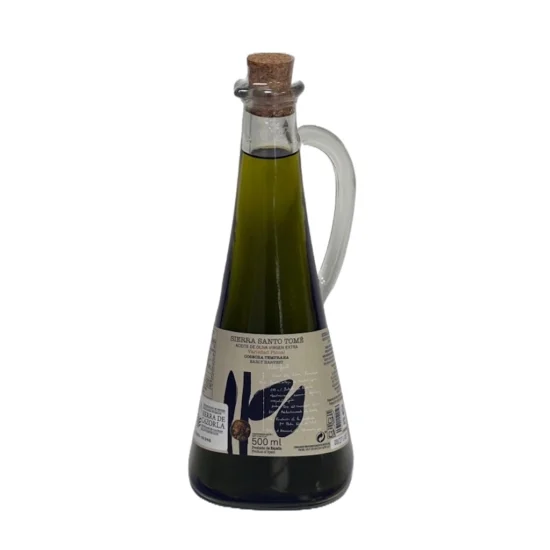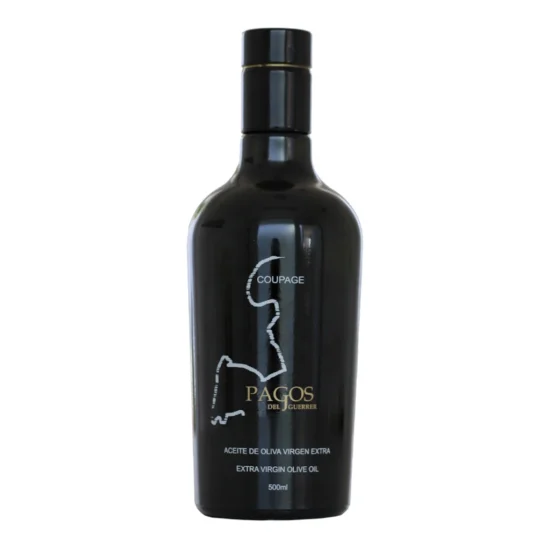
A research team from the University of Jaén (UJA) has confirmed the benefits of extra virgin olive oil on the intestinal flora. They compared the changes that occur in the intestinal microbiota of mice when exposed to a diet containing different types of fat. Experiments show that EVOO promotes the reproductive and functional stability of bacteria in the body.
These results contribute to the localization of microorganisms that serve as markers for metabolic syndrome, a group of organic imbalances that increase the risk of heart disease, cerebrovascular disease, or type 2 diabetes, such as elevated blood pressure or elevated levels of sugar, cholesterol, or triglycerides in the blood, among others, as reported by the Discover Foundation.
Furthermore, the detection of marker bacteria makes it possible to better clarify the causes of irritable bowel syndrome, a group of intestinal disorders about which very little is known today and which, according to the Spanish Foundation for Digestive Systems (FEAD), affects the digestive system. 8% of the population in Spain suffer from other conditions.
The link between the consumption of certain types of fat and certain diseases is widely known in the scientific literature. However, the study of intestinal bacteria at the physiological level, i.e., the influence of diet and the resulting changes on the microbiota, is still an area of research.
In this sense, in the article “”Evidence Supporting the Involvement of the Minority Compounds of Extra Virgin Olive Oil, through Gut Microbiota Modulation, in Some of the Dietary Benefits Related to Metabolic Syndrome in Comparison to Butter“” published in the journal Molecules, the experts described how the health of mice changes depending on the type of fatty acids in their diet and how this affects the action and proliferation of the bacteria that make up the intestinal microbiota.
The researchers point out that more than 1,000 different species of bacteria coexist in the human body. Some of them are well known for their interaction with different foods. function, but it remains a broad area of research for researchers, both in terms of their order and the response they offer in different situations.
227 genera extracted from mouse feces were compared. The test results showed that fourteen of them showed statistically significant differences depending on their diet.
In previous studies, researchers showed that blood pressure is the most visible factor influencing metabolic syndrome, and that its variation is linked to a bacterium called Desulfovibrio. In this way, they confirmed that a butter-rich diet not only increased blood pressure but also increased the presence of this microorganism in mouse feces. However, the parameters for EVOO have not been changed.
The danger associated with the proliferation of these organisms lies primarily in the amount of certain compounds they release. To a certain extent, they are beneficial, but if they produce more than necessary, they become toxic and cause disease. Most bacteria in the gut are anaerobic, meaning they do not require oxygen to survive.
However, they also utilize other elements to perform their functions, such as desulfovibrio, which uses sulfur from food and other compounds present in the body, such as some bile salts. This type of bacteria reduces sulfate in large quantities to generate energy and expels the resulting hydrogen sulfide as waste, which in large quantities is associated with intestinal problems, gallstones, and high blood pressure.
To determine how the diet affected the mice, the experts monitored their weight, blood pressure, and the levels of sugar, cholesterol, and triglycerides in their blood for 12 weeks and analyzed theThe bacteria present in the stool samples were analyzed to compare the differences depending on the type of oil used.
To study the bacterial composition in the stool, DNA was extracted using a new, innovative method called massive sequencing, which significantly reduces the time required to sequence organisms.
The results obtained included that blood pressure parameters, as well as blood sugar, cholesterol, and triglyceride levels, remained similar six weeks after the start of the tests. However, the microbiota was already altered.
The hypotheses suggested that the refined variety would behave similarly to the extra virgin variety, but this was not always the case. “”This suggests that refined oils, like butter, can have negative effects on metabolic syndrome. In addition, the polyphenols contained in EVOO have a direct positive effect on the microbiota, which other fats do not cause because they do not contain them.””
After twelve weeks of experiments, significant differences were observed in many other parameters of the three diets, leading to the conclusion that extra virgin olive oil is the one that best regulates the intestinal microbiota in the body.
The research was funded by the project “”Study on the influence of olive oil on the microbiota of the (murine) gastrointestinal tract and its physiological consequences,”” funded by the Department of University, Research and Innovation of the Junta de Andalucía.
Important Note: aceitedelcampo.com promotes the consumption of extra virgin olive oil for its culinary qualities and health benefits. However, no medication or current treatment should be replaced without the guidance of a healthcare professional.




Subscribe and receive a coupon by email for your next purchase.